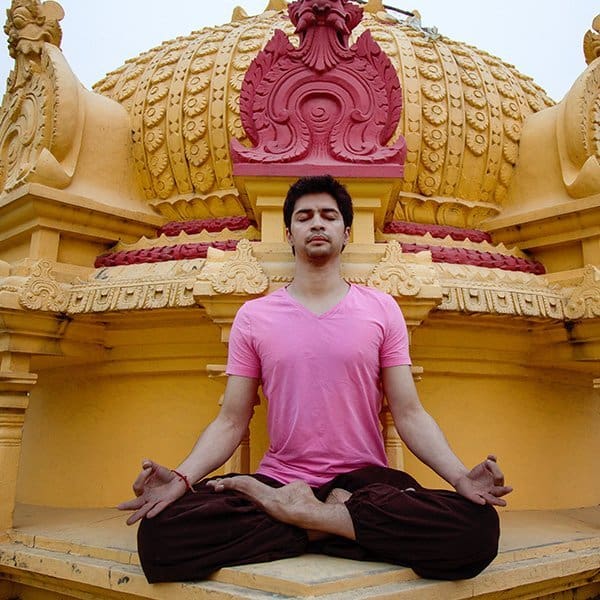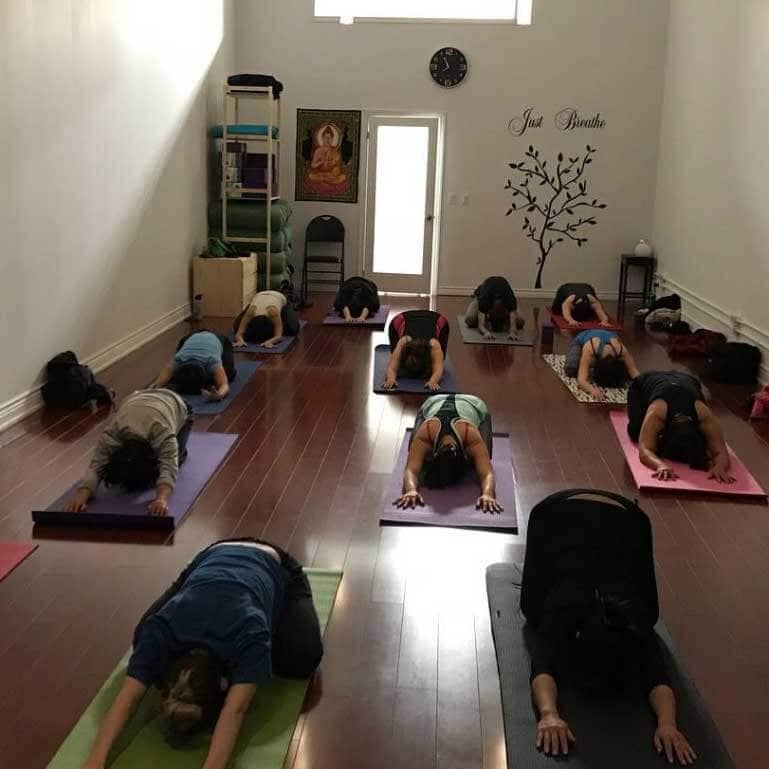WhatIs Yoga
Roots Of Yoga
Yoga is a classical Indian discipline which promotes physical, mental and spiritual health. The basis of Yoga was compiled and systematized around the 3rd CE by the sage Patanjali in his treatise 'Yoga Sutras'. There are 196 sutras (aphorisms) that cover all aspects of life, beginning with a prescribed code of conduct and ending with humankind's vision of her/his true Self. According to Patanjali, "yogah citta vrtti nirodhah" -- Yoga is the cessation of movements in consciousness. With the restraint of the fluctuations of the mind, the soul is uncovered. When a persons mind, intellect and self are freed from restless desire, they rest in the spirit within, and the person becomes 'one' in communion with the Universal Spirit/God within/ Enlightenment.
This ancient science and philosophy of life is based on the belief that health, happiness, contentment and peace of mind come from within. Many different types of yoga practices have emerged over the years to help us open up to these inner qualities.
If the meaning of yoga is understood as the practice of nirodha (mental control), then its goal is "the unqualified state of niruddha (the perfection of that process)",[171]according to Baba Hari Dass. In that context, "yoga (union) implies duality (as in joining of two things or principles); the result of yoga is the nondual state", and "as the union of the lower self and higher Self. The nondual state is characterized by the absence of individuality; it can be described as eternal peace, pure love, Self-realization, or liberation."[172]
Patanjali's writing also became the basis for a system referred to as "Ashtanga Yoga" ("Eight-Limbed Yoga"). This eight-limbed concept is derived from the 29th Sutra of the Book 2 of Yoga Sutras.
These 8 limbs include the Yamas (universal ethical principles), Niyamas (rules of personal conduct), Asana (practice of yoga postures), Pranayama (practice of yoga breathing), Pratyahara (withdrawal of the senses), Dharana (concentration), Dhyana (meditation), and Samadhi (absorption in the Infinite).
When the breath wanders the mind also is unsteady. But when the breath is calmed the mind too will be still, and the yogi achieves long life. Therefore, one should learn to control the breath.





